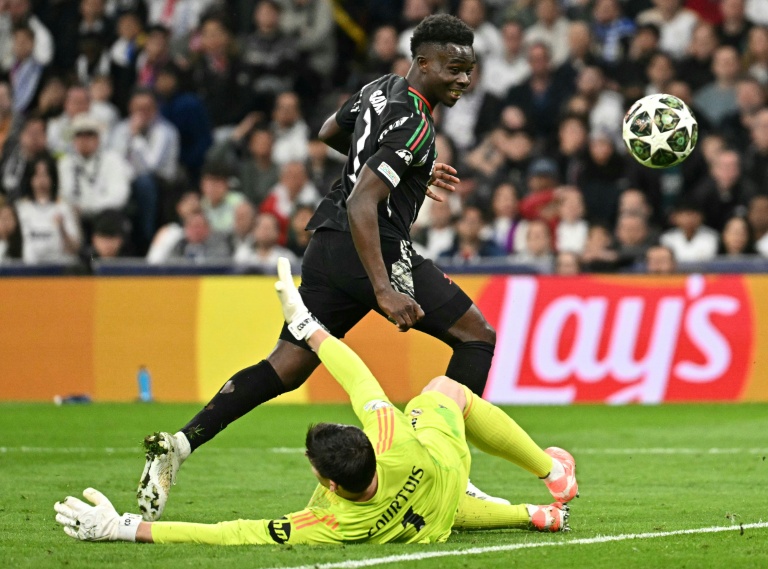East African Runners Find Opportunity in Vietnam's Marathon Boom

A noticeable surge in marathons and the accompanying lucrative prize money has increasingly attracted elite runners from East Africa, particularly Ethiopia and Kenya, to compete in Vietnam. However, the path to becoming a champion is fraught with challenges.
In December, during the Techcombank Ho Chi Minh City International Marathon, Ethiopian runner Tesfaye Tsegaye Keress skillfully navigated through a crowd of nearly 18,000 participants to position himself at the front line just before the race commenced. Standing at a modest height of 1.62 meters (5.3 feet) and weighing approximately 50kg (116 pounds), the 27-year-old Keress took advantage of his size to weave through the throngs of runners and secure a strategic spot ahead of the starting gun. This event is touted as Vietnams largest marathon to date.
Having arrived in Ho Chi Minh City, Vietnams bustling commercial hub, just days earlier, Keress was joined by fellow Ethiopian runner Dereje Alemu Miko, who was set to compete in the 21km (13-mile) half-marathon. The participation of these East African athletes stirred significant interest in the local media, eager to learn more about the competition.
As Keress shared with Al Jazeera, the allure of running was not the only motivation for their journey to Vietnam. Winning the race was crucial for him, as first place would yield a $2,500 cash prize. I have a wife and two sons, and we live in Sendafa, Keress explained, referencing his hometown located approximately 38km (24 miles) northeast of Ethiopia's capital, Addis Ababa. He mentioned, We run a chicken farm and have two cows for milk. Our goal is to expand our farm with the earnings from marathon races.
To secure victory, Keress would face formidable competitors, including some of Vietnams finest long-distance runners and Edwin Kiptoo, a fellow East African who has dominated the Vietnamese marathon circuit after winning several prestigious races.
Despite being an average runner in Ethiopia, a nation celebrated for producing some of the worlds elite track athletes, Keress's personal best marathon time of 2:23:50, achieved in Thailand in 2023, positions him as a strong contender in Vietnam, where marathon running is experiencing a meteoric rise in popularity.
Over the past decade, the marathon scene in Vietnam has flourished, driven by the country's expanding middle class, who are increasingly seeking outlets for fitness in its growing urban areas. The social aspect of running has also gained traction, with marathons witnessing a significant surge in participants since the mid-2010s. Following a temporary slump during the COVID-19 pandemic, interest in marathon running surged post-pandemic, as many individuals focused on health and fitness. As reported by local news outlet VnExpress in 2023, Vietnam hosted 41 full marathon races, attracting around 264,000 participants across 27 provinces and cities, marking a 10-race increase from the previous year.
With hundreds of thousands of runners participating in various marathons throughout Vietnam, private sponsorship has surged, bringing with it substantial prize money. The attractive prize pots are drawing high-caliber athletes like Keress and Kiptoo from East Africa, known for their marathon prowess.
East African runners have long been a dominant presence in the world of competitive running, with iconic athletes such as Kenya's Eliud Kipchoge, who made history in 2019 by becoming the first person to complete a marathon in under two hours, and Ethiopian Haile Gebrselassie, revered as one of the greatest long-distance runners ever, having set 27 world records during his career.
For years, sports scouts have been flocking to East Africa, hoping to discover new talent among the elite runners. Often, sports agents negotiate contracts that allow runners to compete internationally, taking a percentage of their earnings in return. This system has facilitated the participation of runners like Keress and Miko at the Ho Chi Minh City marathon, as they are managed by a Thai promoter who sponsors a team of athletes and operates a company specializing in energy supplements for runners.
The popularity of marathon running has also been on the rise in Thailand, creating a burgeoning market for running gear and other related services. Victories in races yield significant returns for sponsoring brands, enhancing the appeal for brand partnerships and endorsements.
Edwin Kiptoo, another prominent East African runner, had an interesting start to his marathon journey in Vietnam. When he first arrived in December 2023, he was unprepared for the countrys living expenses. With a budget of just 150,000 Vietnamese dong (less than $6), he struggled to find affordable accommodation. However, his luck changed when he met local runner Le Hoan at the race station while collecting their running bibs. Learning of Kiptoos accommodation challenges, Le Hoan took it upon himself to assist Kiptoo in finding a place to stay. Despite unsuccessful attempts using a booking app, Le Hoan invited Kiptoo to his home after discovering they shared a birthday, creating a special bond.
After dinner with Le Hoans family, Kiptoo shared his motivations for running, explaining that he needed to save as much as possible for his family. Le Hoan graciously offered to pay for Kiptoo's hostel stay for the night before the race. The next day, Kiptoo triumphed over Vietnams top marathon runners, Hoang Nguyen Thanh and Nguyen Van Lai, clinching the victory and pocketing a $2,500 cash prize.
Mr. Hoan took me home and offered me meals with his family. He also rented me a hostel room for the night, Kiptoo recounted to Al Jazeera. After I won my first race, I wanted to repay him, but he refused. The generosity of him and his family truly surprised me, he added.
Kiptoos victories significantly elevated his status in Vietnam, turning him into a sought-after star in the running community. His earnings have accumulated impressively, averaging around $1,000 weekly from race wins. In October 2024, he capitalized on his success by signing a major sponsorship deal with the sportswear brand Do-Win Vietnam, a partnership that promises to enhance both his career and the brand's presence in the sports industry.
The contract ensures that Kiptoo's living expenses and race entry fees are covered while also securing a visa that allows him to compete professionally in Vietnama significant advantage, given that securing visas and extensions for African nationals in Vietnam has historically posed challenges.
With the backing of a major sponsor, Kiptoo has gained access to exclusive, publicly funded sports facilities, typically reserved for top Vietnamese athletes. This support has alleviated his financial and logistical burdens, enabling him to focus entirely on training and solidifying his status as a formidable athlete in Vietnam's marathon scene.
The support from the Vietnamese people makes me feel at home, Kiptoo stated, expressing his gratitude for the warm reception he has received.
While Kiptoo enjoys the fruits of his success, the reality of marathon running is that it remains a gamble, with inherent physical and mental challenges. For runners from Africa competing in Vietnam, obstacles extend beyond the race itself, affecting their professional journeys.
In March 2023, runners Kemboi Ezekiel from Kenya and Marta Tinsae Birehan from Ethiopia entered a race in Ho Chi Minh City, motivated by the promise of an automobile prize for breaking the Vietnamese marathon record. Upon their arrival, they learned that the car prize had been a one-time offer from the previous years race. Disappointed but undeterred, both runners proceeded to compete. While Ezekiel faced minimal competition in the mens race, Marta faced an unexpected hurdle when she collapsed while leading the womens race, having mistakenly consumed an electrolyte drink that upset her stomach.
Even Kiptoo, despite his extensive experience in the field, faced challenges. In late 2024, he was sponsored to compete in a marathon in Hanoi but fell victim to a registration error that resulted in him receiving only an age-group prize of $200 instead of the $2,100 meant for the overall winner. Despite this setback, he maintained a positive outlook, stating, We all have to follow the rules.
During the Ho Chi Minh City Marathon in December, Kiptoo once again demonstrated his prowess, cruising past the finish line ahead of Keress and thousands of others. Keress, meanwhile, finished behind him in visible distress, attributing his performance to fatigue from racing in a previous event.
Though he limped across the finish line, Keress's spirits lifted upon discovering he had secured third place, earning $1,000 in prize moneyan amount he hoped to utilize for expanding his farm. However, as his promoter takes a portion of his winnings, his final earnings were reduced. Miko, on the other hand, dominated the half-marathon, taking home a $600 prize.
After completing their races, both runners returned to their hotel for some well-deserved rest before heading back to Thailand, where they had been training for the past six months. Their Thai promoter manages every facet of their careers in Southeast Asia, including travel, accommodation, training schedules, race entries, and immigration paperwork.
For runners like Keress and Miko, who have limited experience competing beyond their home territories, such management arrangements are invaluable. The two expressed deep respect for their Thai manager, viewing him as a guiding figure in their athletic journeys.
As they prepared to return to Ethiopia to reunite with their families, they were uncertain how much prize money they would be able to bring home after accounting for the costs of travel, accommodation, and food that are often deducted from their earnings. Furthermore, not all marathons disburse their prizes immediately, resulting in financial unpredictability for many runners.
Despite the inherent challenges faced by these prize-seeking athletes in Vietnam, word of the countrys potential as a life-changing destination for runners is beginning to spread throughout East Africa. Kiptoo, along with Keress and others, shared their optimism about what Vietnam can offer.
Previously a teacher in Eldoret, Kenya, Kiptoos modest salary barely covered his familys needs. The onset of the COVID-19 pandemic compounded their financial struggles, prompting him to pursue running as a means to escape poverty. His success in Vietnam has allowed him not only to support his family but to invest in several properties back home.
Reflecting on his unexpected journey, Kiptoo noted, In Kenya, we watch a lot of Vietnamese films, but very few people truly understand what life is like in Vietnam. He himself had little knowledge of the country before his arrival.
As marathon running in Vietnam shows no signs of slowing, it is likely that the allure of the country for African runners will continue to grow. Perhaps more Kenyan athletes will come here in the future to earn money through running events. But its not easy, he cautioned. The two countries are very far apart, and marathons always carry unpredictable risks.



























